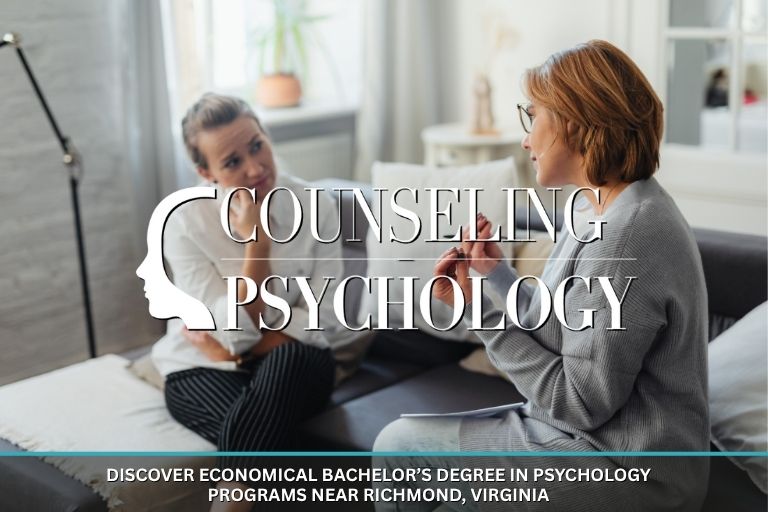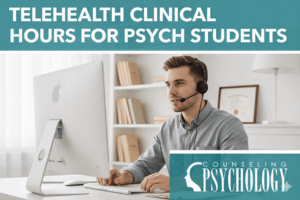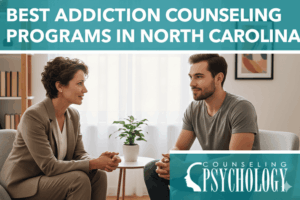Discover Economical Bachelor’s Degree in Psychology Programs Near Richmond, Virginia

Richmond, Virginia, a historic capital city with a growing healthcare and research footprint, is an ideal place to launch a career in psychology. With its mix of urban challenges, suburban communities, and rural access points, the region provides a dynamic setting for aspiring psychologists, counselors, behavioral specialists, and mental health advocates. A bachelor's degree in psychology is often the first step toward these rewarding career paths, and Richmond offers several affordable options that combine academic quality with real-world application.
The demand for psychology majors continues to grow nationwide, and Richmond is no exception. According to the Virginia Employment Commission, roles in mental health and human services are expanding faster than average across the state. Whether students are pursuing clinical careers, social services, or graduate study, starting with an economical undergraduate program in Richmond can provide both a solid foundation and local opportunity. This guide highlights low-cost, regionally accredited psychology programs available in and around Richmond, along with insights on coursework, transfer pathways, and career outcomes.
2026 Economical Bachelor's Degree in Psychology Programs Near Richmond, Virginia
Virginia State University
Petersburg, VA - Public 4-Year - vsu.edu
Bachelor's - Bachelor's of Science in General Psychology
Campus Based - Visit Website
Virginia State University's Psychology Bachelor's program offers an economical educational pathway with distinctive advantages. As a historically black college (HBCU), the program provides affordable tuition and targeted research opportunities in health psychology. Students explore comprehensive psychological domains including developmental, social, and abnormal psychology, gaining practical skills through hands-on research experiences. The curriculum prepares graduates for diverse career trajectories in mental health, counseling, and research settings. Admission requires standard high school completion, with no complex entrance exam prerequisites. The program's affordability stems from its public university status, state funding, and potential scholarship opportunities for qualifying students, making advanced psychological education accessible to a broader demographic.
- Campus-based program
- Focus on health psychology
- Research opportunities available
- Prepares for diverse careers
- Comprehensive curriculum
William & Mary
Williamsburg, VA - Public 4-Year - wm.edu
Bachelor's - Psychological Sciences
Campus Based - Visit Website
William & Mary's Psychological Sciences program offers an economically competitive bachelor's degree ideal for budget-conscious students in the Richmond region. Located in nearby Williamsburg, the program provides both B.A. and B.S. degree options with flexible curriculum pathways. Students benefit from affordable in-state tuition rates and a comprehensive psychological sciences education. The B.S. track includes additional science courses, enhancing research and analytical skills for future graduate studies or professional psychology careers. Military-friendly status and comprehensive financial aid options further reduce overall educational expenses. Prospective students should expect standard undergraduate admission requirements, including SAT/ACT submissions, and explore scholarship opportunities to maximize affordability.
- Offers B.A. and B.S. degrees
- Campus-based program
- Additional science courses for B.S.
- Located in Williamsburg, VA
- Comprehensive psychology curriculum
Why Study Psychology in Richmond, Virginia?
The greater Richmond area offers more than just affordability. It's home to major hospital systems, nonprofit organizations, and public service agencies that value psychology graduates. Entry-level positions in case management, research support, and behavioral health assistance are often available to those with a bachelor's degree, especially through partnerships with institutions like VCU Health, Bon Secours, and the Virginia Department of Behavioral Health and Developmental Services.
Psychology students in Richmond also benefit from diverse internship sites, including youth centers, domestic violence shelters, school systems, and local court programs. Whether interested in child development, forensic psychology, or community mental health, students have access to hands-on experiences that strengthen their resumes and graduate school applications.
Common Psychology Coursework and Learning Outcomes
Bachelor's degree programs in psychology emphasize both theory and applied learning. While course offerings vary by school, students typically gain exposure to:
| Core Area | Topics Covered |
| General Psychology | Foundations, history, theories, major contributors |
| Research Methods | Experimental design, statistics, ethical research |
| Developmental Psychology | Human growth from infancy to adulthood |
| Abnormal Psychology | Disorders, diagnosis, treatment models |
| Social Psychology | Group behavior, influence, identity, prejudice |
| Electives | Topics like health, forensic, or cultural psychology |
Programs may culminate in a capstone project, internship, or research thesis depending on the institution. Students graduate with analytical, communication, and problem solving skills applicable to a range of careers.
Benefits of Transferring From a Community College
Many psychology students in Richmond begin their academic journey at a community college. This path can significantly reduce tuition costs while still providing a rigorous foundation in general education and introductory psychology coursework. Some institutions offer associate degrees with psychology specializations that transfer seamlessly into four-year programs through articulation agreements.
Students who start at a community college can take advantage of guaranteed admission pathways to public universities. These agreements allow students to complete the first two years of their degree at a reduced rate before transferring as juniors to finish a bachelor's in psychology. In many cases, transfer students retain access to merit-based scholarships, honors programs, and research opportunities at their new institutions.
This approach not only supports affordability but also helps students transition into the academic and social culture of a four-year university with confidence. Advisors at both community colleges and receiving universities guide students through the transfer process, ensuring alignment with licensure or graduate study goals.
Career Paths With a Bachelor's in Psychology
Graduates from psychology schools in Virginia with a bachelor's in psychology can explore multiple fields, even without a graduate degree. In Richmond, common entry-level roles include:
- Case Manager or Mental Health Technician: These professionals help coordinate care plans, conduct client intake assessments, and connect individuals with vital services. Many work in outpatient facilities, group homes, or local government programs.
- Substance Abuse Counselor Assistant: Often employed by recovery centers or nonprofits, these assistants support treatment delivery, facilitate group sessions, and monitor client progress under the supervision of licensed counselors.
- Human Services or Youth Program Coordinator: Working in schools, shelters, or community centers, these coordinators develop programming, supervise staff, and manage day-to-day operations that support at-risk youth and families.
- Behavioral Health Assistant in Hospitals or Clinics: These team members provide frontline support to psychologists, social workers, and nurses by tracking patient behavior, documenting care plans, and assisting during therapy sessions.
- Research Assistant or Data Analyst in University or Clinical Settings: These roles involve collecting and analyzing psychological data, preparing reports, and contributing to research publications, especially valuable for graduates considering advanced degrees.
Employers such as VCU Health, RBHA (Richmond Behavioral Health Authority), and Dominion Youth Services frequently seek psychology graduates to fill these vital positions. Additionally, those planning to continue to graduate school often pursue advanced training in counseling, clinical psychology, social work, or occupational therapy. See other psychology careers for more options.
Financial Aid and Tuition Assistance Options
To make education more affordable, Richmond-area schools offer a variety of financial support options:
- Virginia Tuition Assistance Grant (VTAG): Available to in-state residents attending private institutions
- Transfer Grants and Community College Scholarships: Offered through VCCS and Reynolds
- Federal Pell Grants and Work-Study: Based on FAFSA application
- University-Specific Scholarships: Many institutions provide aid based on need, merit, or major
Students are encouraged to connect with financial aid offices early and explore grant-funded support programs available for first-generation or underrepresented students.
Building a Future in Psychology in Richmond
Richmond’s commitment to behavioral health, social equity, and education makes it a valuable place to begin a psychology career. With an expanding network of mental health organizations and a focus on community-based solutions, graduates of local psychology programs are well-positioned to make meaningful contributions, making the investment in a bachelor's degree in psychology worth it. Those who pursue entry-level positions in human services often gain practical experience that informs long-term career planning, while others leverage their degree to access graduate training opportunities in fields like counseling, social work, school psychology, or occupational therapy.
By choosing an economical psychology degree program in Richmond, students can graduate with less debt, stronger community ties, and greater flexibility to explore diverse career pathways. Whether working with children in underserved schools, supporting rehabilitation services in healthcare systems, or contributing to academic research, psychology graduates help address complex needs and promote individual and collective wellbeing throughout the region.
Sources
- Virginia Employment Commission: Occupational Projections
- Virginia Department of Behavioral Health and Developmental Services
- SCHEV: Transfer Virginia Portal



